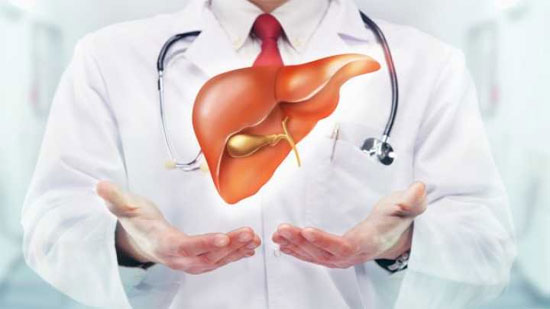Liver Disorders
Introduction
Liver disorders are the diseases of liver. Liver is a vital organ and performs several necessary functions. The liver diseases may be mild, moderateor severe. There are several causes of liver disease and the treatment depends upon the disease. Do not ignore the symptoms of liver disease as it may result in progression of disease leading to lengthening the treatment, irreversible damage, or causing complications.

What Are The Various Types Of Liver Disorders?
There are several types of liver diseases. Some of them are:
- Hepatitis: Hepatitis means inflammation of the liver. Hepatitis is generally due to hepatitis virus; however other organism may also cause hepatitis. The most common virus causing hepatitis are hepatitis A, hepatitis B, and hepatitis C virus.
- Liver cancer: Liver cancer involves the presence of malignant cells in the liver tissues. The cancer cell interferes in the liver function and have the potential to metastasize to lymph nodes and other organs.
- Autoimmune diseases: In some patients, the immune system of the body considers liver as a foreign tissue and attacks the liver. Some of the autoimmune disease include Autoimmune hepatitis, Primary sclerosing cholangitis, and Primary biliary cholangitis.
- Cirrhosis: Cirrhosis is a serious condition and is an advanced liver disease. In this disease, the healthy cells of the liver are replaced by the scar tissues. The condition is irreversible and progressive. People with cirrhosis are at increased risk of developing liver cancer.
- Wilson’s Disease: This is an inherited disease. In this disease, there is excessive accumulation of copper in the body. As the copper accumulates in the liver, it damages it. Liver lost its ability to release the copper in the blood stream. Apart form liver, the copper also accumulates in kidney, eyes, and brain.
- Fatty Liver disease: Fatty liver disease is the condition in which excessive fat is accumulated in the liver. The fatty liver disease may be either non-alcoholic fatty liver disease or alcoholic fatty liver disease.
- Hereditary disease: Apart from Wilson disease, there are several other hereditary diseases that affects the liver. Some of them are Alpha-1 antitrypsin deficiency and Hemochromatosis.
- Liver failure: Liver failure is the condition when the liver is unable to perform the desired functions. Liver failure is a chronic condition and occurs gradually. However, some patients may also have acute liver failure.
- Biliary atresia: Bile moves out of the liver through bile duct. However, due to several causes, there is an inflammation in the bile duct resulting its blockage. Thus, the bile accumulates in the liver causing damage to liver cell and scarring of liver.
What Are The Symptoms Of Liver Disorders?
Some of the symptoms of liver disease are:
- Yellowing of skin and eyes.
- Loss of appetite
- Abdominal pain and indigestion
- Fatigue
- Dark color urine and pale color stool
- Itchy skin
- Nausea and vomiting
What Are The Causes Of Liver Disorders?
There are several causes of liver disorders. Some of them are:
- Infection: Infection is one of the most common cause for liver disease. The liver infections may be due to bacteria, virus or other pathogens. These pathogens invade the liver cells and causes inflammation.
- Immune disorders: Immune system protects the body from the foreign invaders. However, when the immune system attacks the body’s own organ, the condition is known as autoimmune disease. The immune system attacks the liver and may cause autoimmune hepatitis.
- Hereditary: Hereditary is another cause for liver disease. During the development of the fetus, change in the critical genetic information may result in liver disease.
- Drugs and chemotherapy: Several drugs, such as paracetamol, may have adverse effects on liver. Chemotherapy drugs may also damage the liver cells.
- Alcohol: Excessive and prolong consumption of alcohol may result in liver disease.
- Excessive exposure to toxic chemicals: People who have prolonged exposure to the toxic chemicals may have liver disease.
What Are The Factors That Increases The Risk Of Liver Diseases?
Several factors increase the risk of liver disease. Some of the factors include unhygienic lifestyle, excessive alcohol consumptions, self-medication, obesity, diabetes, nutritional supplements and exposure to toxic chemicals.
What Are The Complications Of Liver Disorders?
The complications of liver disease depend upon the type of liver disease and its severity. The complication may be swelling in abdomen and legs, infections, bleeding, kidney failure, hepatic encephalopathy, portal hypertension, accumulation of fluid in the brain, hepatic coma, and death.
How The Doctor Diagnose Liver Disease?
There are several methods for diagnosing liver disease. The diagnostic evaluation includes physical examination, blood tests, imaging techniques, such as ultrasound and CT scan, and biopsy.
What Are The Liver Disorder Treatments Available In Delhi?
The treatment depends upon the type and severity of liver disease. Several hospitals in Delhi can manage the patients with liver disorders. However, the patient should only select the best liver hospital in Delhi. Some of the option for liver disease treatment available in Delhi are:
Monitor: Not all liver diseases require treatment. In mild cases, the doctor may advise the patient to take rest and lead a healthy lifestyle. The doctor may monitor the condition of patient and may prescribe medicines in case the disease progresses. The doctor may also advise you to lose weight or have restrictions on certain foods.
Medicines: Doctor may prescribe the medicinesbased ondisease. In case of hepatitis, the doctor may prescribe antiviral drugs, while the doctor advises you to take antibiotics in case of bacterial infection. The doctor also prescribes anti-inflammatory drugs to reduce inflammation and supplements to boost liver function.
Surgery: When the medicines cannot provide relief to the patient, the doctor may recommend surgery. In liver cancer, the doctor may remove either the tumor or some part of liver to prevent progression. You should consult with the best GI surgeon in Delhi for undergoing liver surgery.
Liver transplantation: In case of complete liver failure, such as in advanced liver cirrhosis, liver transplant is the only option.
Which Doctor I Should Consult For Liver Disease Treatment In Delhi?
Liver is considered as a part of gastrointestinal system. Thus, you should consult with the best GI surgeon in Delhi.
What Is The Cost Of Liver Disease Treatment In Delhi?
Cost of liver disease treatment in Delhi depends upon several factors. These include type and severity of liver disease, hospital infrastructure, experience of the doctor, days of hospital stay, and type of treatment opted for.
How Should I Get Moe Information About Liver Diseases Treatment In Delhi?
You can seek more information about the liver disorders Please contact us.
Tags = GI Surgeon in Delhi
For more information = https://www.gastrodelhi.com/
See more blogs = https://gisurgeonindelhi.blogspot.com/2022/06/laparoscopic-hepatobiliary-surgery-in.html
- What are the causes of pancratic diseases?
- Gallstones treatment and gallbladder stone surgery in delhi at gastrodelhi
- What are the various diseases treated with laparoscopic colorectal surgery in delhi?
- Dr. neeraj goel is the best cancer surgeon in delhi, india
- Robotic surgery in delhi by dr. neeraj goel at gastrodelhi
- Cancer surgeon in delhi - dr. neeraj goel at gastrodelhi
- Dr. neeraj goel, cancer surgeon in delhi at gastrodelhi
- Cancer surgeon in delhi, dr. neeraj goel, and gi surgeon in delhi | gastrodelhi
- How the doctor performs robotic surgery in delhi? | robotic surgery in delhi
- What are the various types of robotic surgeries available in delhi? - robotic surgery in delhi | gastrodelhi

 Comments (
Comments ( Category (
Category ( Views (
Views (